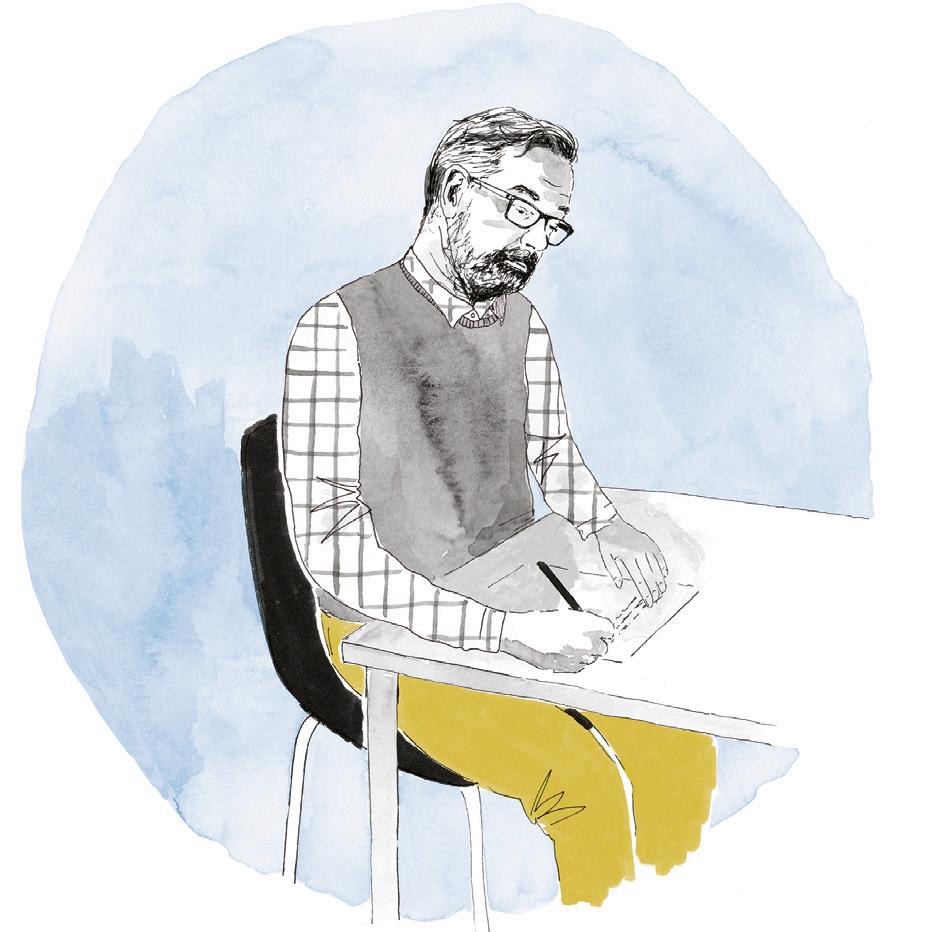
5 minute read
Letter from the Editor
EDITOR’S LETTER
How will we remember the year 2020 when it’s all over? We may remember the clean air and quiet roads, and we may remember the struggles and stresses involved in getting enough food and drink.
But apart from that, will we remember it at all? My diary, for instance, is blank from early March onwards – blank, that is, apart from all the engagements and trips that had been planned only to be cancelled or postponed, and are now still in the pages of the diary, crossed out. Postponed till when? It’s hard to tell – pretty much everything this side of October is now not happening and some events that have been put back once have since been postponed even further.
This has affected everyone in the industry – although as we see in the pages of this issue of HCB, many companies are able to carry on and, with some tweaks to the way they are doing things, are still making money.
Also affected, of course, have been the regulators. They too have been unable to travel – and probably unwilling, too. After all, who wants to share a stuffy meeting room in Geneva with 100 or so other experts who have flown in from all points of the compass? Let’s not forget either that a fair number of these experts are not in the first flush of youth – that’s how they get to be experts – and are among those most at risk from the virus.
So if the experts cannot get to the meeting rooms at the UN building, how do they make regulations? Well, the short answer is: they can’t. So far this year the spring Joint Meeting of the RID/ADR/ADN experts, the spring sessions of the RID Committee of Experts and its standing working group and of WP15, and the summer sessions of the UN TDG and GHS experts have all been cancelled.
In all cases, these meetings were the last opportunity for the regulators to agree major changes to their respective rulebooks and, at least for RID and ADR, the 2021 texts will include only those changes that had already been adopted in the latter part of 2019 – although there may be some amendments, corrections and consequential amendments.
Likewise, the UN TDG Sub-committee will now miss the third of its four sessions in the current biennium. Traditionally this has been the one session where all the hard work and disagreements are sorted out and set down as the amendments that will appear in the next issue of the UN Model Regulations, for publication next year. The final session is generally left for late changes and tidying up. This will not happen this time around.
What all this does mean is that the next editions of the regulations will include fewer changes than they might have done. I dare say there will be many in industry who see this as a good thing, and I have some sympathy with that position.
On the other hand, it also means that there may be some safety-critical changes that are not adopted promptly, although the modal authorities may be able to bring those forward into the 2023 revisions rather than wait to 2025.
And in any case, you will still have to buy copies of the new regulations next year.

CONTENTS
VOLUME 41 • NUMBER 06
UP FRONT Letter from the Editor 30 Years Ago Learning by Training View from the Porch Swing In memoriam: David Jenkins 01 04 05 06 07
GAS TANKERS Ready for anything Gas ship owners enjoy it for now 08 FP and semi-ref fleet listing 11 Fully refrigerated fleet listing 12 Green gas shipping Gasum helps Preem get clean 13
TANKER SHIPPING Kirby gets a grip US barge business going strong 14 Grab and go Odfjell takes advantage of market 15 Over to you Team outsources management 16 Pump it up Big landmark for Framo 17 News bulletin – tanker shipping 18
TANK CONTAINERS Take it from the top ITCO guidance on tank top working 20 Ready for the fight VTG breaks all records 22 TANKS & LOGISTICS Run on time Implico finds where the trains are 24 Eyes in the skies CSafe tracks the cold chain 25 The power of seven Power-to-methanol plan in Antwerp 26 Stay positive Hoyer targets investments 27 News bulletin – tanks and logistics 28
CHEMICAL DISTRIBUTION What Corona tells us Fecc looks for lessons in a crisis 30 Perfect storm UK distributors face double trouble 32 Stick with the project Brenntag’s holistic transformation 34 Spring into action Univar starts 2020 brightly 36 Tomorrow is now Matlack highlights digitisation benefits 37 News bulletin – chemical distribution 38
INDUSTRIAL PACKAGING Just the ticket Cross-bottling reconditioning from Schütz 40 Open and shut case Greif concentrates on industrial markets 41
COURSES & CONFERENCES Through the mill The editor becomes a DGSA Conference diary
SAFETY Incident Log 45
Stay safe TT Club highlights Covid-19 risks 46 It’s good to talk NTSB identifies communication issues 48 Fire in the hold Amsafe FCC passes another test 49 Waiting to happen HSE slams Chevron over deaths 50 Getting wet Intercargo wants action on liquefaction 53
REGULATIONS Keep in step More amendments from the UN 54 Catch the last train RID experts agree changes 62
BACK PAGE Not otherwise specified 68
NEXT MONTH HCB AT 40 – a special issue looking back at four decades of dangerous goods
Editor–in–Chief Peter Mackay, dgsa Email: peter.mackay@hcblive.com Tel: +44 (0) 7769 685 085 Campaigns Director Craig Vye Email: craig.vye@hcblive.com Tel: +44 (0) 208 371 4014
Commercial Director Ben Newall Email: ben.newall@hcblive.com Tel: +44 (0) 208 371 4036 Production Manager Binita Wilton Email: binita.wilton@hcblive.com Tel: +44 (0) 208 371 4041 Managing Editor Stephen Mitchell Email: stephen.mitchell@hcblive.com Tel: +44 (0) 208 371 4045
Designer Jochen Viegener
Cargo Media Ltd Marlborough House 298 Regents Park Road London N3 2SZ ISSN 2059-5735 www.hcblive.com
HCB Monthly is published by Cargo Media Ltd. While the information and articles in HCB are published in good faith and every effort is made to check accuracy, readers should verify facts and statements directly with official sources before acting upon them, as the publisher can accept no responsibility in this respect.










